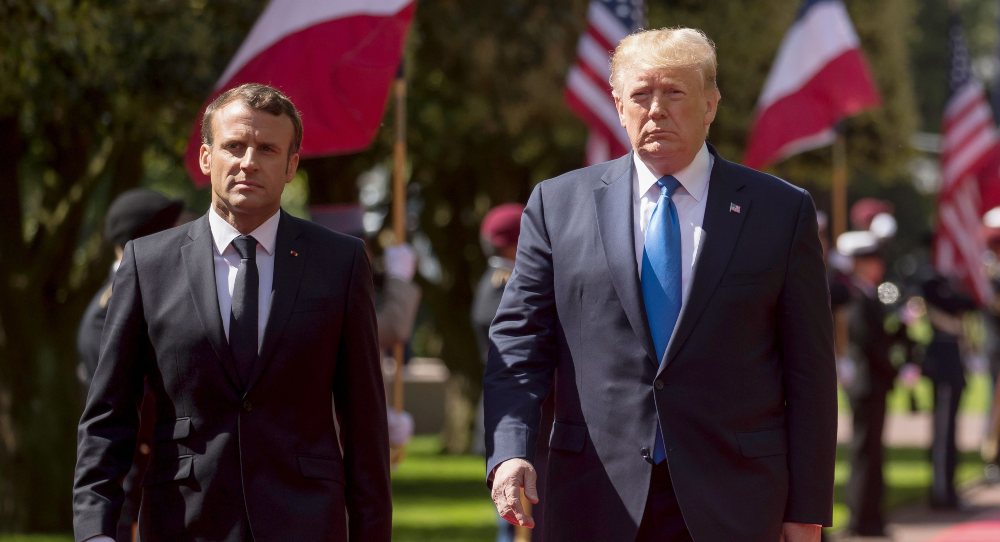What an extraordinary summer.
The UK impounded an Iranian tanker allegedly destined for Syria. The administration of U.S. President Donald Trump was thrilled: it thought it had London on its side to take on Iran. Prime Minister Boris Johnson did indeed agree to support the United States in protecting shipping in the Strait of Hormuz. But Britain still supports the Joint Comprehensive Plan of Action (JCPOA), the nuclear deal that world powers agreed with Iran in 2015. And a court in Gibraltar on August 15 released the tanker, later rejecting a U.S. legal request to seize it again. The so-called special Anglo-American relationship is not plain sailing.
The Iran nuclear deal is not quite in shatters, but Europe is powerless to make it stick unless Washington and Tehran return to diplomacy instead of dangerous saber-rattling. So far, Europe’s own diplomatic efforts have had little effect—it lacks political and economic weight. And it lacks a strategy about how to keep the Strait of Hormuz safe for global commercial traffic.Europe’s reaction to the huge, unprecedented demonstrations in Hong Kong is another case of helplessness.
The demonstrations, which may have numbered 1.7 million over the weekend of August 17–18, are not just about demanding that the China-backed Hong Kong leadership scrap plans to extradite individuals to China to stand before Chinese courts. They are also about the explosion in the cost of property and the lack of affordable housing. Above all, they are about the people of Hong Kong determined to defend their democratic freedoms. They do not want to live under a communist system.
No one knows how Beijing will end these protests. What is surprising is that prominent Hong Kong business leaders and academics have not attempted to mediate between the protesters and Carrie Lam, Hong Kong’s chief executive. She was appointed by Beijing in 2017 but has been incapable of dealing with the protesters’ demands. The stakes are immense for all sides—yet the Europeans are passive onlookers to these incredible protests as if they don’t recall what happened across Eastern and Central Europe thirty years ago.
Take also what’s happening in Kashmir where Indian Prime Minister Narendra Modi scrapped Article 370, which gave near-autonomous status to the Muslim-majority Indian state of Jammu and Kashmir. His decision is highly controversial to say the least. With two nuclear powers, Pakistan and India, confronting each other over the disputed territory, this part of South Asia could become more unstable, and dangerously so. Don’t hold your breath about an EU mediating role, or for that matter a U.S. one.
And just to add to the woes that dominated the summer, Trump took another swipe at Germany (and included Japan and South Korea). He wants these governments to shoulder the costs for American troops and personnel based in their countries. If not—whether that is a threat or not—Trump would reduce, pull out, or relocate those troops.
One of Trump’s ideas is to use Poland as a base instead of Germany. Dream on! Germany is a logistical hub for around 35,000 American troops. The Ramstein Airbase is used for the U.S. Air Forces in Europe & Air Forces Africa, apart from the other crucial infrastructures needed for U.S. operations. Poland is no substitute for this hub, which was built up over decades.
Despite that, Trump’s criticisms of Germany are well-known, from its car exports, its big trade surplus, and its shambolic armed forces, to Chancellor Angela Merkel’s consistent and staunch defense of the post-1945 multilateral institutions. Merkel does not hide her contempt for Trump and vice versa.
As for French President Emmanuel Macron, whose country has a special intelligence and military relationship with the Pentagon, he will have his hands full when he hosts the G7 summit in France on the weekend of August 24–26. The summit will take place just after Johnson makes a long-overdue visit to Paris and Berlin to tell Macron and Merkel that he is taking Britain out of the EU by the end of October, deal or no deal. What a way to seek common ground.
This catalog of woes demonstrates two depressing trends.
One is the absence of American leadership. Even if its diplomats are working non-stop behind the scenes, they are certainly not getting the kind of support they need from their president. Trump has been singularly disruptive in his trade dispute with China, which has global implications for growth and stability. He has been disruptive in his dealings with Iran, almost indifferent toward Hong Kong, and what about the Kashmir crisis?
And just to add to the woes, the looming political and financial crisis in Argentina, the back-peddling against corruption in Brazil, and the miserable situation in Venezuela are all issues that seriously affect the United States and Europe.
The second trend is that European leadership has been so absent in these crises at a time when American leadership has been chaotic and transactional. Europe has been napping for far too long because it depended on and expected the United States to take the lead. That is an excuse that is becoming redundant.
Closer to home, Brexit has become a time-consuming distraction, while Merkel is biding her time as chancellor of Europe’s biggest economy. Her coalition government is almost paralyzed: it cannot even agree on climate change goals or something as basic as putting a speed limit on superhighways. Italy’s messy, populist politics and the continuing disagreements over how to deal with refugees betray a Europe unable even to deal with its own domestic problems.
For now, Macron is the only leader who is taking the initiative on reforming the EU, on trying to end Russia’s blatant interference in eastern Ukraine, and on making Europe act strategically. He cannot do it alone. And the upshot of weak European leadership and chaotic American leadership can be both dangerous and exploited by China, Russia, and other countries.
The West is not in good shape.







